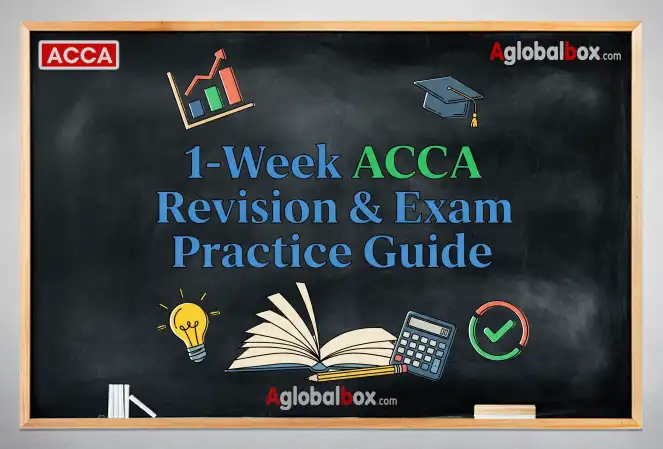Are you searching for comprehensive materials and resources to excel in your ACCA Management Accounting (MA) exam? The F2 Practice and Exam Kit Management Accounting serves as your essential companion for mastering this fundamental ACCA qualification. This detailed guide explores everything you need to know about the MA module, from understanding its core concepts to developing effective study strategies that will help you achieve success.
What is the ACCA Management Accounting (MA) Module?
The ACCA Management Accounting (MA) module, formerly known as F2, represents one of the foundational papers in the ACCA qualification framework. This module introduces you to the fundamental principles of management accounting and provides essential knowledge for your professional accounting career.
Core Learning Objectives
| Topic Area | Key Focus | Weight |
|---|---|---|
| Cost Accounting Systems | Cost classification, behavior, and recording | 25% |
| Budgeting and Variance Analysis | Planning, control, and performance measurement | 30% |
| Decision Making | Short-term and long-term decision techniques | 25% |
| Performance Measurement | KPIs, balanced scorecard, and divisional performance | 20% |
The MA syllabus covers essential topics including cost accounting systems, budgeting, variance analysis, and performance measurement. You will learn how to analyze costs, prepare budgets, calculate variances, and evaluate business performance using various management accounting techniques.
Key Concepts You’ll Master
The module focuses on practical applications of management accounting principles. You’ll develop skills in cost classification, absorption costing, marginal costing, and activity-based costing. Additionally, you’ll learn about budgeting processes, standard costing, and variance analysis techniques that are crucial for management decision-making.
How Difficult is it to Study and Pass the MA Exam?
The ACCA Management Accounting exam presents a moderate level of difficulty, making it accessible for students with proper preparation and study materials. Understanding the exam structure and requirements is crucial for your success.
Exam Format and Structure
The MA exam consists of 70 multiple-choice questions that must be completed within 90 minutes. This computer-based examination tests your understanding of management accounting concepts through practical scenarios and calculations.
Common Challenges Students Face
Many students find certain areas particularly challenging:
- Variance analysis calculations and their interpretation
- Activity-based costing applications in complex scenarios
- Performance measurement techniques and their limitations
- Decision-making scenarios requiring multiple analytical approaches
Success Rates and Statistics
The MA exam typically maintains a pass rate between 65-75%, indicating that with adequate preparation, most students can achieve success. The key lies in consistent practice with quality materials and understanding the underlying concepts rather than memorizing formulas.
Why Choose BPP for Your ACCA MA Preparation?
BPP stands as one of the most trusted names in ACCA education, offering comprehensive study materials that align perfectly with the ACCA syllabus. Their practice and exam kits provide structured learning experiences designed to maximize your exam success.
BPP’s Proven Track Record
BPP has been supporting ACCA students for over four decades, developing materials that consistently help students achieve their qualification goals. Their expertise in understanding exam patterns and requirements makes them an invaluable resource for your studies.
Quality of Content and Materials
BPP materials feature:
- Comprehensive coverage of all syllabus areas
- Practice questions that mirror actual exam standards
- Detailed explanations for complex concepts
- Regular updates to reflect current exam trends
Student Support and Resources
Beyond traditional study materials, BPP provides additional support through online platforms, webinars, and student communities where you can interact with fellow learners and experienced tutors.
Benefits of Using PDF Practice, Revision, and Exam Kits
Digital study materials offer numerous advantages for modern ACCA students, particularly those balancing studies with work or other commitments.
Accessibility and Convenience
PDF materials provide instant access to study resources from any device, allowing you to study wherever and whenever it suits your schedule. This flexibility is particularly valuable for working professionals pursuing their ACCA qualification.
Cost-Effective Study Solution
Digital materials often provide better value compared to traditional printed books, making quality education more accessible to students across different economic backgrounds.
Interactive Learning Features
Modern PDF materials often include:
- Searchable content for quick reference
- Bookmarking capabilities for important sections
- Highlighting tools for personalized study notes
- Cross-referencing between related topics
Environmental Benefits
Choosing digital materials also supports environmental sustainability by reducing paper consumption and printing requirements.
How to Plan Your MA Exam Preparation
Effective planning forms the foundation of successful ACCA exam preparation. Creating a structured study schedule ensures you cover all syllabus areas while maintaining consistent progress.
Creating Your Study Timeline
Begin by assessing your current knowledge level and available study time. Most students require 100-120 hours of study for the MA exam, including reading, practice, and revision phases.
Recommended Study Schedule:
- Weeks 1-4: Foundation concepts and basic calculations
- Weeks 5-8: Advanced topics and complex scenarios
- Weeks 9-10: Intensive practice and revision
- Week 11: Final review and exam preparation
Setting Realistic Goals
Establish specific, measurable objectives for each study session. Instead of vague goals like “study costing,” set precise targets such as “complete 20 absorption costing questions and review solutions.”
Balancing Study Areas
Allocate study time based on exam weightings and your personal strengths and weaknesses. Spend more time on areas where you feel less confident while maintaining regular review of stronger topics.
How to Effectively Prepare for the ACCA MA Exam
Success in the MA exam requires a combination of theoretical understanding and practical application through consistent practice.
Understanding the Syllabus Structure
The MA syllabus is divided into four main sections, each requiring different study approaches:
- Cost accounting systems – Focus on understanding cost classifications and recording methods
- Budgeting – Emphasize planning processes and variance calculations
- Decision making – Practice scenario-based questions and analytical techniques
- Performance measurement – Learn various measurement tools and their applications
Developing Practical Skills
Management accounting is inherently practical, requiring strong numerical skills and analytical thinking. Regular practice with calculations and problem-solving scenarios is essential for exam success.
Active Learning Techniques
Employ various study methods to maintain engagement and improve retention:
- Summarize key concepts in your own words
- Create mind maps for complex topics
- Practice calculations regularly
- Teach concepts to others or study groups
Mock Exam Strategy
Take regular mock exams under timed conditions to build confidence and identify areas needing additional attention. Analyze your performance to understand patterns in your mistakes and focus your revision accordingly.
Last-Minute Preparation Guide for MA Exam
The final days before your exam require focused revision and strategic preparation to maximize your performance.
Final Week Priorities
During your last week of preparation, concentrate on:
- Reviewing key formulas and concepts
- Practicing time management with mock exams
- Identifying common question types and solution approaches
- Preparing mentally for exam day
Key Formulas to Remember
Ensure you’re comfortable with essential calculations:
- Variance analysis formulas
- Activity-based costing calculations
- Budget preparation techniques
- Performance measurement ratios
Managing Exam Day Stress
Develop strategies to remain calm and focused during the exam:
- Arrive early to avoid rushing
- Read questions carefully before answering
- Manage time effectively across all questions
- Stay confident in your preparation
Quick Review Checklist
Before entering the exam room, ensure you can:
- Distinguish between different costing methods
- Calculate various types of variances
- Interpret performance measurement indicators
- Apply decision-making techniques to scenarios
Advanced Study Strategies for MA Success
Beyond basic preparation, implementing advanced study techniques can significantly improve your exam performance and understanding of management accounting principles.
Understanding Question Patterns
Familiarize yourself with common question formats and the specific knowledge areas they test. This understanding helps you quickly identify what each question requires and apply the appropriate solution method.
Building Calculation Speed
The MA exam’s time constraints require efficient calculation skills. Practice core calculations repeatedly until they become second nature, allowing you to focus on analysis rather than basic arithmetic.
Developing Analytical Thinking
Management accounting requires strong analytical skills to interpret results and make recommendations. Practice explaining your calculations and their business implications to develop this crucial skill.
Common Pitfalls and How to Avoid Them
Learning from common mistakes can prevent costly errors during your exam and improve your overall understanding of management accounting concepts.
Calculation Errors
Systematic approach to calculations reduces errors:
- Always show your working
- Double-check arithmetic
- Use logical sequences for complex calculations
- Verify that answers make business sense
Misunderstanding Question Requirements
Carefully read each question to understand exactly what is being asked. Pay particular attention to:
- Units of measurement required
- Specific time periods mentioned
- Whether approximations are acceptable
- Any additional commentary requested
Time Management Issues
Practice pacing yourself during study sessions to develop effective time management skills for the actual exam.
Technology and Digital Tools for MA Preparation
Modern technology offers numerous tools to enhance your study experience and improve learning outcomes.
Online Practice Platforms
Digital platforms provide interactive question banks, instant feedback, and progress tracking to support your preparation journey.
Mobile Study Applications
Smartphone apps allow you to practice questions during commutes or spare moments, maximizing your study time efficiency.
Spreadsheet Skills
Developing proficiency in Excel or similar spreadsheet software enhances your ability to perform complex calculations and analyze data effectively.
Building Long-Term Management Accounting Skills
The MA exam is just the beginning of your management accounting journey. Developing skills that extend beyond exam requirements will benefit your professional career.
Practical Application Skills
Look for opportunities to apply management accounting concepts in real-world situations, whether through work experience, case studies, or simulation exercises.
Continuous Learning Mindset
Management accounting practices evolve with business environments and technology. Maintain curiosity about new developments and techniques in the field.
Professional Development
Consider how the MA qualification fits into your broader career goals and plan subsequent ACCA papers accordingly.
Key Takeaways
- The F2 Practice and Exam Kit Management Accounting provides essential preparation for the ACCA MA exam
- BPP materials offer comprehensive coverage and proven effectiveness for ACCA students
- Digital PDF materials provide flexibility and accessibility for modern learners
- Effective planning and consistent practice are crucial for exam success
- Understanding question patterns and developing calculation speed improve performance
- The MA qualification builds foundational skills for advanced management accounting studies
Frequently Asked Questions
Q: How long should I study for the ACCA MA exam? A: Most students require 100-120 hours of study time, typically spread over 10-12 weeks of consistent preparation.
Q: Are BPP materials sufficient for passing the MA exam? A: BPP materials provide comprehensive coverage of the syllabus and are widely considered sufficient for exam success when used consistently.
Q: Can I pass the MA exam without prior accounting experience? A: Yes, the MA exam is designed as a foundation-level paper accessible to students without prior accounting knowledge.
Q: How important are mock exams for MA preparation? A: Mock exams are essential for building confidence, improving time management, and identifying areas needing additional focus.
Q: What’s the best way to memorize formulas for the MA exam? A: Focus on understanding concepts rather than memorizing formulas. Regular practice with calculations helps formulas become second nature.
Q: Should I focus more on theory or calculations for the MA exam? A: Both are important, but the MA exam emphasizes practical application, so regular calculation practice is essential.
Conclusion
The F2 Practice and Exam Kit Management Accounting represents your pathway to success in the ACCA MA examination. Through comprehensive preparation using quality materials, consistent practice, and effective study strategies, you can confidently approach your exam and achieve your professional goals. Remember that the MA qualification builds essential skills that will serve you throughout your accounting career, making your investment in thorough preparation valuable beyond the exam itself.
By following the strategies outlined in this guide and utilizing appropriate study materials, you’re well-positioned to excel in your ACCA Management Accounting exam and advance your professional journey.





